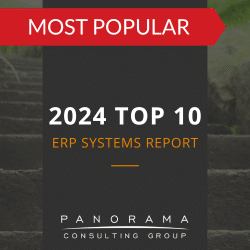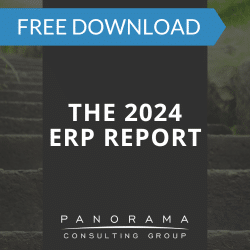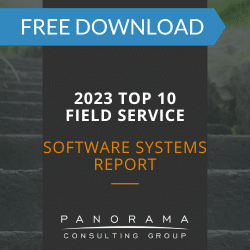The right ERP system can streamline your operations, automate your workflows, and help your team members work more collaboratively. Yet, the road to get there isn’t always simple.
What does “the right ERP software” mean anyway? In the simplest terms, this is the system that meets your unique business needs both in the long term and short term.
Maybe you need a solution that breaks down siloes. Maybe you need a solution that ensures data reliability. Regardless of your needs, here are some expert tips for finding the technology that will support your vision for years to come.
4 Tips for Selecting the Right ERP Software
1. Get Specific
Start by looking at your current processes to understand what’s working and what isn’t. This will help you define your business requirements.
As you meet with prospective vendors, ask them about their experience in your niche. Have they worked with companies in your sector before? If so, what were their results?
The right software will not only support your industry and vertical markets but your micro-verticals, too. This is the best way to ensure you’re staying up to date with industry best practices. It also ensures you’re not paying for functionality you don’t need.
The 2024 ERP Report
88.5% of respondents said they deployed or plan to deploy AI at their organization. Learn about AI adoption and other ERP trends by downloading our latest report.
2. Take Your Time
Too often, companies assume they’ll find the right ERP system and implementation partner relatively quickly. As such, they only allocate a small window of time to this process.
The reality is that the ERP selection phase will take several months.
When building your project timeline, be sure to give your team enough time to perform their due diligence.
You don’t want to rush into this decision for the sake of timeliness and end up selecting whatever solution feels right. Instead, work with an independent ERP consulting team that can help you make an informed and unbiased decision.
3. Don’t Believe Everything You Hear
Vendor demos are designed to make software look impressive. However, not all the demoed functionality may be currently available.
Before scheduling any demos, we recommend giving vendors a script to follow. They may still demo unavailable functionality, but at least it’s functionality you might actually need. You can ask about software versions and release dates afterward.
Above all, remember that the demo process is riddled with risks. Our computer software experts can vouch for the fact that a poorly managed demo process can make your project team much more susceptible to vendor misrepresentation.
4. Dive Deep
Once you’ve defined your business requirements and met with vendors, you might be torn between two really strong options.
To help you narrow it down, there are a few deep dives you can take:
- Software functionality deep dive: How does each platform perform the functions you require?
- Technology deep dive: What does each vendor offer in terms of integration, security, and scalability?
- Implementation deep dive: What are the implementation specifics (e.g., timeline, budget, methodology, industry experience)
You won’t have the same answers to all these questions. As you compare the two options, it should become clear which one is best aligned with your current needs and future goals.
What ERP Solution is Right for Your Organization?
A successful ERP implementation project requires the right process improvements, the right change management strategy, and the right information strategy. It also requires clear business goals and alignment among stakeholders.
The final piece of the puzzle is the right ERP software.
As you’re comparing software options, remember that the ERP selection and ERP implementation process is much easier to navigate with experienced ERP consultants by your side.
Our team has worked on more ERP litigation cases than we can count. This means we understand the most common risk areas and can help you avoid them throughout selection and implementation. Request a free consultation below.














